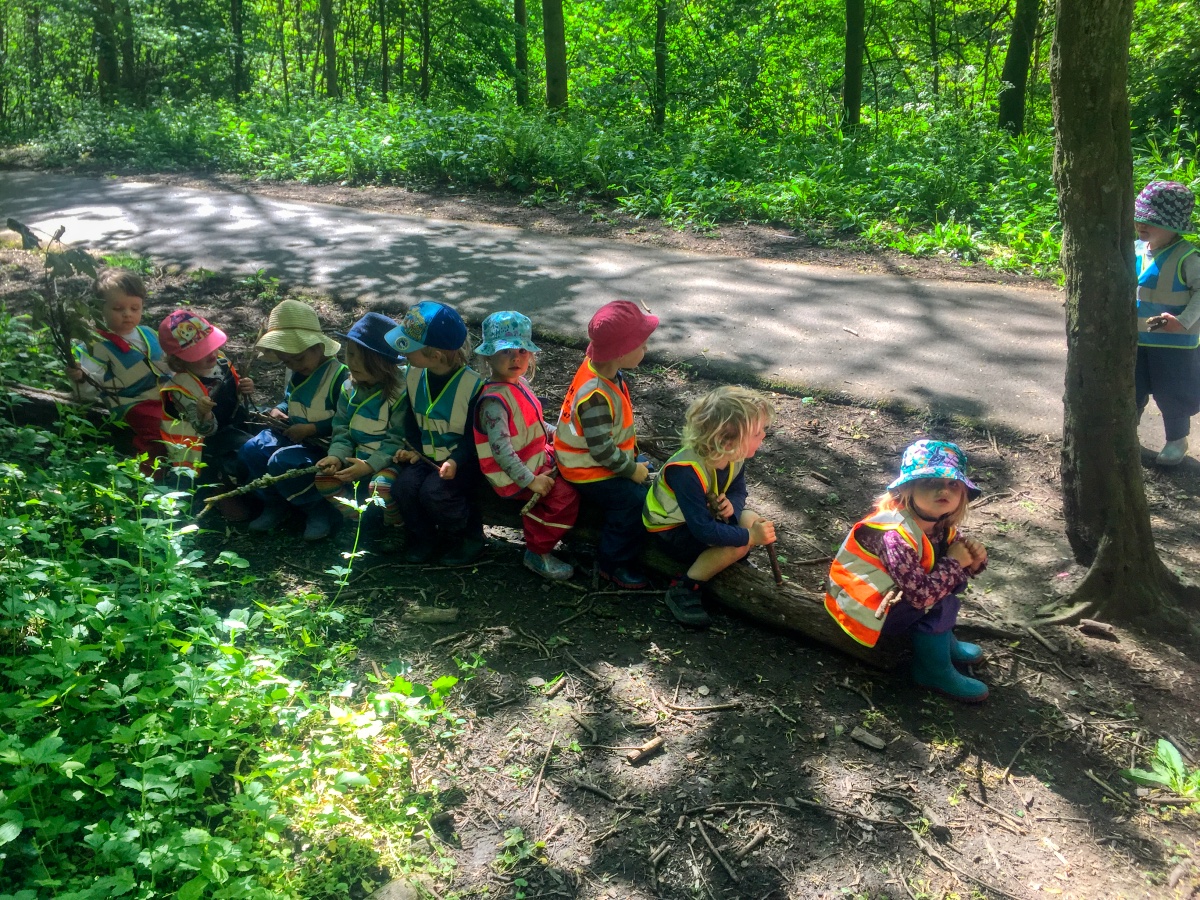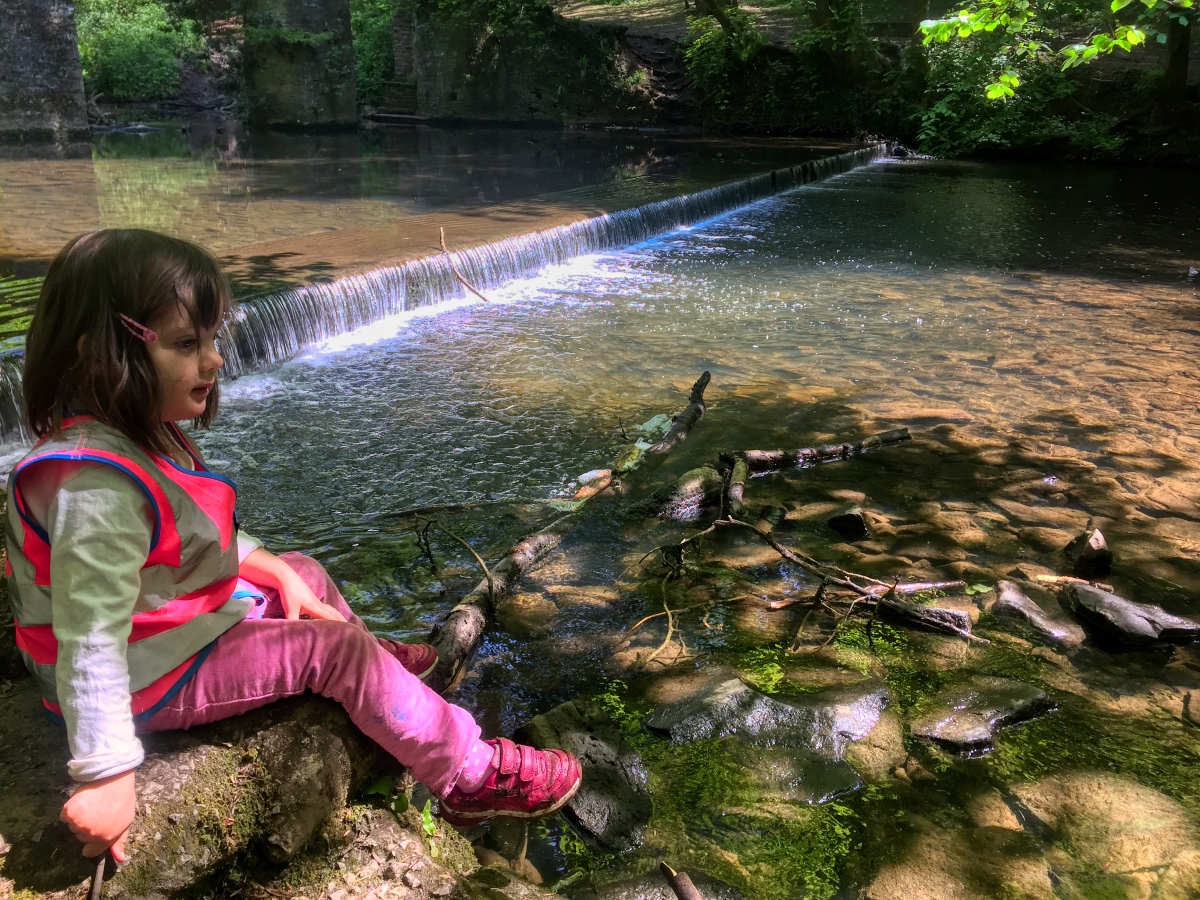Our kindergartens - a brief introduction
Our largely outdoor Kindergartens are open to rising 3’s (2 but almost 3) to 5 years old. They are term time only and operate four days a week (Monday - Thursday).
We open at 8.00 for a flexible drop off but our 'kindie' day starts at 9.00 and finishes at 15.00. Parents collect anytime between 15:00 and 15:20. For those who need longer hours, we offer an after kindie session from 15.30 - 17.30 on Mondays, Tuesdays and Wednesdays. Please note places for this are limited. Please see admissions for details. As well as 'base camp' (the scout huts), we have the use of numerous and fantastic outdoor spaces to add variety to our day. These include local woodlands and alternative green spaces.
We offer a varied timetable which includes seasonal cooking sessions, forest school, beach trips, allotment visits, local trips and adult led workshops. Children have the freedom to walk, run, sing, climb, eat, read, splash, dig, swing, jump, think and play their way through the day as we offer lots of opportunities for nature-based play by taking the preschool experience outside.
We offer 28 places a day. There are always 5 key members of staff and, more often than not, a few additional adults to support the children. At least one (if not more) of these adults is a qualified teacher and the others are early years educators, forest school leaders, early years support workers, apprentices, students and volunteers.
Choose your site
Continue reading to find out more about us
Play, Explore, Imagine & Wonder.
“I believe that children are naturally curious and self-motivated to learn. So what better place to develop this curiosity than outside the traditional classroom, in the natural environment. What better place to be self-motivated than in a place where you can run freely, climb a tree, dig a hole, scale a mudslide, turn over a log. My ethos for the Out There Kindergarten is for it to be the place where children are free to play, explore, imagine and wonder at their leisure.
”
Out There was born out of a passion for outdoor learning. As early years educators, primary school teachers, Forest School leaders and play workers, we have witnessed first-hand the benefits of children spending an increased amount of time outdoors in their natural environment; improved physical development, increased motivation and self esteem, a greater awareness of the natural world and our place within in.
We want to take the very best bits of all of our educating experiences and weave them in to something that is unique and special.
We want to strip back children’s preschool play experiences, and move away from plastic toys, a kitchen or shop role play area and a designer outdoor space in order to see what children’s imaginations are capable of. Giant logs become rocket ships or sailing boats, sticks become wishing wands, rope becomes a giant beanstalk.
We believe all children have the right to an outstanding, equal education. We are inclusive and want to ensure every child can access our provision and learning outdoors.
“ I am so inspired by Out There Kindergarten and know that my child is very happy there. One day just wasn’t enough so he now attends all three days. ”
Parents whose children attend our setting have commented on how happy their children seem, how calm they are when get back from their day and how excited they are to come back again. The smallness of the setting allows for very special and positive relationships to form. There are just enough children for children to have a wide group of friends but we are small enough to offer that extra nurturing to each child.
A picture is worth a thousand words
“Our preschool applies Forest School principals and practices, as well as Reggio, Rudolf Steiner and Maria Montessori approaches to learning and development.”
Early Years Foundation Stage / Development and Learning
As experienced practitioners, we are really excited about planning for your child’s learning and development and think very carefully about delivering the early years curriculum in an outdoor setting. Our curriculum, planning and resources are very child-led, as we follow each child on their individual learning journey.
We plan and assess for the seven areas of learning and development, as set out in Development Matters in the EYFS.
Communication and Language
Physical Development
Emotional and Social Wellbeing
Literacy - reading and writing
Maths
Expressive Art and Design
Understanding the World
Our holistic approach means that these seven areas of learning are embedded into our daily structure and routine, our indoor and outdoor environments, our carefully chosen resources, the adult-guided activities and the child-initiated play.
A 'typical' DAY AT OUT THERE PRESCHOOL
You might say there is no typical day, as every day is unique and special. However, we do have certain routines and structures that will benefit your child and prepare them for what comes after preschool. These routines include daily wake and shake, circle time, snack time in key groups and reflection time at the end of the day. These are times when your child is most likely to sit and spend valuable time with their key person and peers. They will begin to build up their skills in communication and language and emotional and social wellbeing.
How we spend our day also depends on the time of year and the weather. If the weather permits, we like to register children outside in the garden. At any point throughout the year, we have the option to go indoors, but even when it's very windy, too wet or cold, we still like to get outside every day of the year.
Arrival
Children can arrive between 8.00 and 9.00. This allows for working parents to drop off at a time that is more convenient for them. Children usually get stuck into playing on arrival as we wait for everyone to arrive. Children have access to various resources; sensory play, small world, mark making, arts and crafts, loose parts, role play etc.
Going off-site
This is a big part of what we do but also varies according to the season. In the Spring and Summer, we often head out for the day and take packed lunch with us. In the Autumn/Winter it makes much more sense to shorten our outings to mornings only and then head back to base camp for lunch. We are lucky that the scout huts have large gardens that enable lots of different types of play.
Snack time and lunchtime
We provide a healthy, organic mid-morning snack. Snack time is taken in key groups, allowing some quality time for children to bond with their key person and in their key groups.
At lunchtime, children enjoy a packed lunch (provided by you) around the fire circle. Lunchtimes are lovely and calm and a chance to reflect on the morning experiences.
The end of the day
We finish our day with some quiet time, where children can relax and unwind with stories, music, yoga and mindfulness. Parents can collect anytime from 15.00 (or earlier by prior arrangement).
OUR EDUCATIONAL ETHOS
We know how many parents recognise the value alternative learning approaches can bring, as do we. Our preschool applies Forest School principles and practices and Reggio, Rudolf Steiner and Maria Montessori's approaches to learning and development. You can find out more about our vision and ethos here.
Forest Schools
The philosophy of Forest Schools is to encourage and inspire individuals of any age through positive outdoor experiences. Forest School activities offer children the opportunity to learn about the natural environment, how to handle risks and most importantly, to use their own initiative to solve problems and work with others.
Steiner Waldorf
The future development of each individual child depends on health-giving experiences in the first seven years of life. An atmosphere of loving warmth and guidance that promotes joy, wonder, and reverence supports such healthy development. The most essential aspect is the inner attitude of the educator, who provides an example for the child to imitate. Therefore Waldorf educators must engage in an ongoing process of research and self-education, including anthroposophical study, meditative practice, and artistic and practical activity.
Montessori
Dr Montessori saw that children learn best by ‘doing’ and that happy, self-motivated learners form positive images of themselves as confident, successful people. The Montessori approach is holistic and aims to develop the whole child. Fundamental to the approach is the belief that a child's early years, from birth to six, are the period when they have the greatest capacity to learn.
our DIFFERENT OUTDOOR SITES
The slideshow below shows you some photos of the amazing green spaces that we have access to.
Click on any picture above to browse our photos








